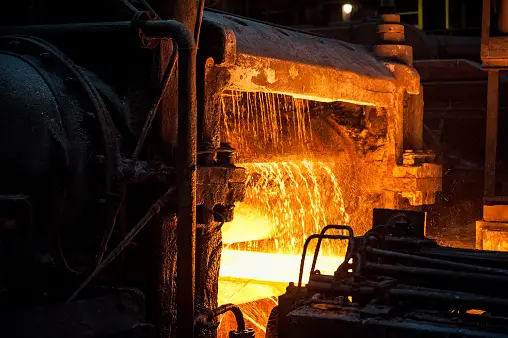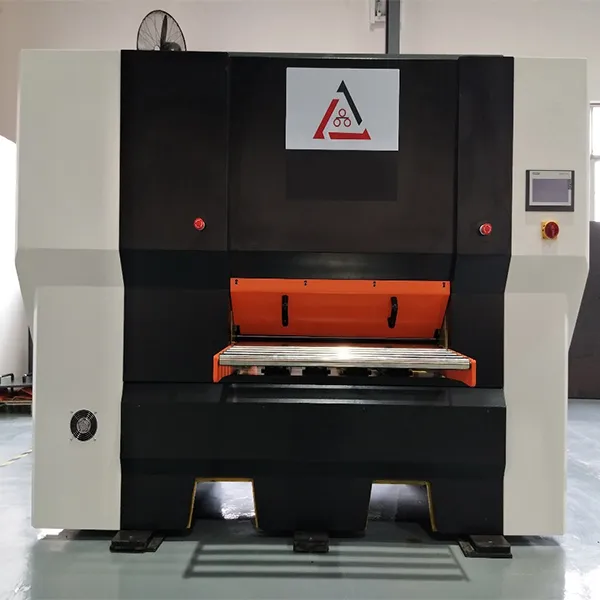
The Importance of Internal Stress Released in Metal Components
In the world of precision manufacturing and metalworking, the quality and performance of metal components are non-negotiable. While factors like material grade and dimensional accuracy are often the primary focus, there is a silent, invisible force that can dramatically compromise the integrity of a part: internal stress. Also known as residual stress, this is the stress that remains locked within a metal component even after all external forces have been removed. Understanding and effectively managing this internal stress through processes like precision leveling and flattening is not just a technical step; it is a fundamental requirement for producing reliable, high-performance metal products. At XINLIJIN, as specialists in advanced leveling machinery, we delve into why internal stress release is critical and how our roller leveling machines and flattening systems provide the definitive solution.
What is Internal Stress and How Does It Occur?
Internal stress is an inherent byproduct of most metal forming and fabrication processes. During operations such as rolling, bending, stamping, welding, or even uneven cooling from heat treatment, the crystalline structure of the metal becomes distorted. Some grains are compressed, while others are stretched, creating a complex network of locked-in forces striving to return to a state of equilibrium. Imagine a deck of cards being bent; even after you release the external pressure, the cards want to spring back or remain slightly warped. This is a simple analogy for the complex internal stress state within metal.
These stresses are "invisible" to the naked eye. A metal sheet might appear perfectly flat after initial fabrication, but the hidden internal stresses act as a ticking time bomb, waiting to be triggered by subsequent machining, changes in temperature, or even just the passage of time.
The Critical Consequences of Unmanaged Internal Stress
Failure to address and release these internal stresses can lead to a cascade of problems that affect every stage of production and the final product's lifecycle.
-
Dimensional Instability and Warping: This is the most direct and common consequence. When a component with high internal stress is cut, machined, or has material removed, the careful balance of forces is disturbed. This causes the part to warp, twist, or bow, leading to out-of-tolerance components that must be scrapped or reworked. This results in massive material waste, increased production costs, and significant delays.
-
Reduced Structural Integrity and Fatigue Life: Internal stresses superimpose with the operational loads a component will bear. A part already under tension from internal stress will reach its failure point much sooner under a lower applied load. This drastically reduces the product's fatigue life, making it prone to premature cracking and catastrophic failure, especially in dynamic or high-load applications like automotive frames, aerospace components, or heavy machinery.
-
Poor Performance in Subsequent Operations: In automated production lines, consistency is key. A sheet metal blank with latent internal stress will not feed, stamp, or weld predictably. It can cause misfeeds in CNC punch presses, lead to inconsistent weld gaps, and create spring-back issues in press brakes, making it impossible to achieve repeatable, high-quality bends.
-
Surface Quality Issues: For components that require a flawless surface finish, such as those used in architectural applications or consumer electronics, unrelieved stress can cause "oil-canning" or visible waviness. This is not only an aesthetic defect but can also interfere with coating adhesion and functional performance.
The Solution: Precision Leveling for Effective Stress Relieving
So, how do we tame this invisible enemy? The most effective and efficient method for relieving internal stress in sheet metal, plates, and coils is through precision roller leveling or flattening.
Unlike thermal stress relieving, which involves heating the entire component in a furnace—a process that is energy-intensive, time-consuming, and can cause scaling or distortion—mechanical leveling offers a cold-working solution. A roller leveling machine, like those engineered by XINLIJIN, works by systematically subjecting the metal to a series of controlled bending cycles.
As the metal passes through the staggered rolls of a leveling machine, it is bent alternately in opposite directions. This process plastically deforms the metal beyond its yield point in the areas of highest stress, effectively "resetting" the grain structure and allowing the stressed grains to yield and redistribute their load. The result is a homogenous, stress-relieved material that is not just superficially flat but is fundamentally stable.
Why XINLIJIN Leveling Machines are the Optimal Choice for Internal Stress Relief
At XINLIJIN, we design our industrial automation equipment with a deep understanding of metallurgy and material science. Our range of roller straightening machines, plate flattening machines, and coil processing lines are not mere flattening devices; they are sophisticated internal stress management systems.
-
Precision Engineering: Our machines feature robust frames and precisely machined rollers that apply calculated pressure to ensure a thorough and uniform stress-relieving effect across the entire material surface.
-
Adaptability: Whether you are working with thin gauge precision shim or thick steel plate, our CNC leveling machines can be calibrated to apply the exact amount of work required to neutralize the specific internal stress profile of the material.
-
Integrated Workflow: Our decoiler leveler feeder lines combine uncoiling, flattening, and feeding into one seamless operation, ensuring that the material is stress-relieved immediately before the forming or cutting process, guaranteeing optimal results.
Conclusion: An Investment in Product Reliability
Releasing internal stress is not an optional extra; it is a essential step for any manufacturer committed to quality, reliability, and efficiency. It is the difference between a component that looks good initially and one that performs flawlessly throughout its intended lifespan. By integrating a XINLIJIN precision leveling system into your production line, you are not just flattening metal—you are investing in dimensional stability, enhancing structural integrity, reducing waste, and building a reputation for unwavering product quality.


















































